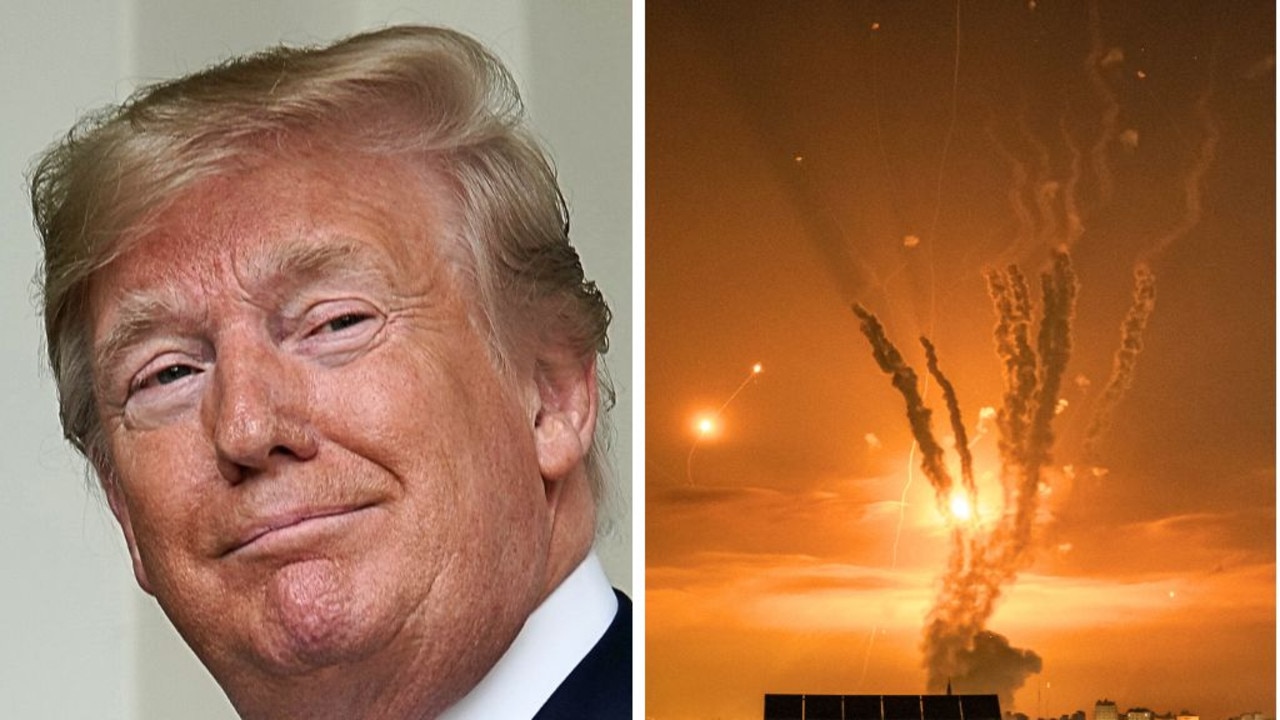How Donald Trump’s conviction will reverberate for years to come
A sudden turn of events in a courtroom will reverberate for years to come. This is the inside story of what Donald Trump’s conviction means for this year’s election and beyond.
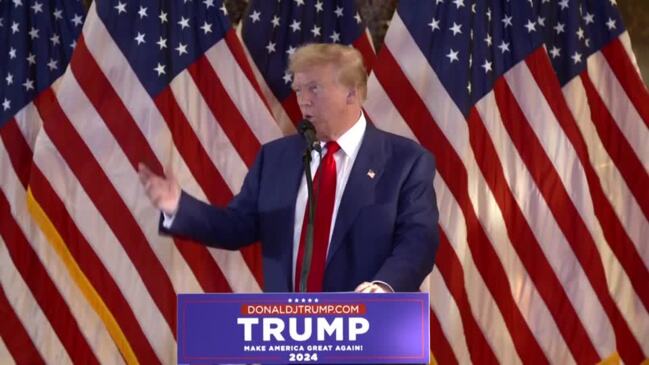
World
Don't miss out on the headlines from World. Followed categories will be added to My News.
It was the most relaxed Donald Trump had been throughout his criminal trial.
Judge Juan Merchan announced he would send the jury home after their second day of deliberations. Trump and his legal team figured that was good news – the longer it took, the higher the chances that one of the 12 ordinary New Yorkers would vote against a conviction.
Trump laughed. He chatted with his lawyers. He thanked the Manhattan Criminal Court staff who had managed a trial unlike any other in American history.
But then Merchan re-emerged. There was a verdict. The jurors entered moments later and the foreman – a salesman originally from Ireland – read it out.
Guilty, 34 times over.
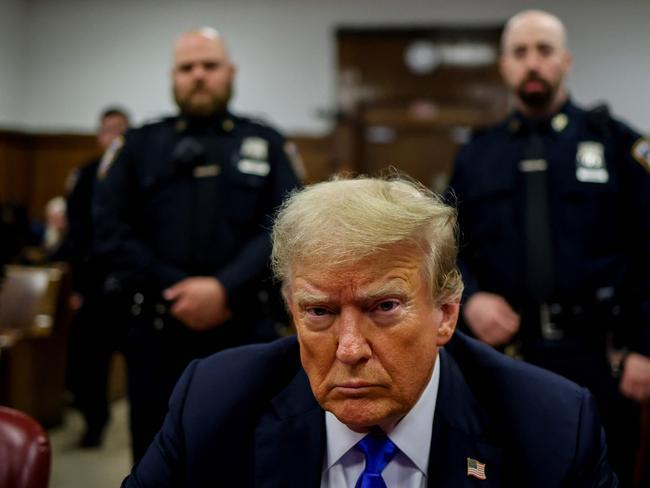
It was not as though the former and potentially future US president did not see this coming. The chance of a conviction had informed his effort to sow doubts about the case with his daily rants outside the courtroom about the judge, the prosecutors and even the witnesses.
Nevertheless, what unfolded in those stunning few minutes will reverberate for years to come, deepening the fissures in an already divided country barely five months before an election in which Trump will now try to return to power as a convicted felon.
He could win and be sent to prison, sparking a constitutional crisis. He could lose and then have the verdict overturned on appeal, giving his supporters a more serious claim of a stolen election than after his 2020 loss, when they violently invaded the US Capitol. He could still be convicted in three more criminal cases – and he could still sit in the Oval Office again.
“November 5th is the most important day in the history of our country,” Trump said of the election. On that, if nothing else, US President Joe Biden will be inclined to agree.
Their responses to the verdict – Trump arguing it is rigged, Biden arguing it is the rule of law in action – are already being reflected by the nation at large. While a snap YouGov poll found 47 per cent of Americans believed Trump’s trial was fair, that figure was 81 per cent among Democrats, 42 per cent among independents, and 15 per cent among Republicans.
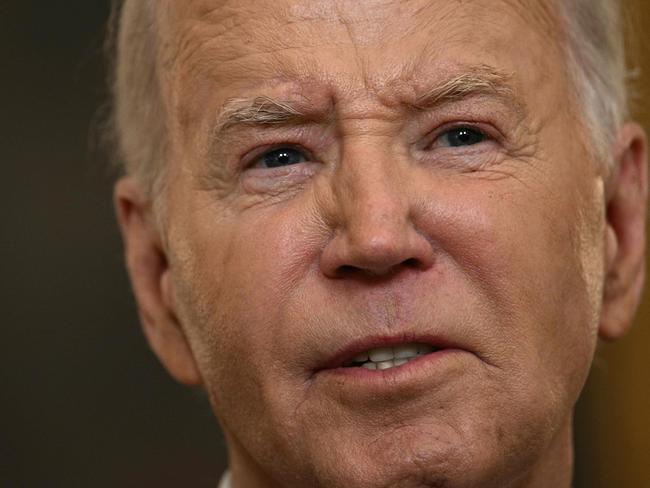
Trump’s base is furious. In the hours after the verdict, his supporters helped him smash his daily fundraising record. House Republican Speaker Mike Johnson went as far as to suggest the conviction would fire up conservative voters on a scale comparable to how the Supreme Court’s abolition of the right to abortion two years ago motivated progressive voters.
Ohio senator JD Vance, a potential vice presidential candidate, egged on Trump’s supporters by telling them: “Don’t get angry, don’t get depressed – get even.”
Republican strategist Scott Jennings pointed out that this rage was coming not just from Trump’s loyal “Make America Great Again” backers, but even his internal enemies.
“Trump’s not their favourite person … and they are hopping mad about this,” he said.
Moderate Republican Larry Hogan – the ex-Maryland governor who is running for the Senate – was one of the few members of his party to suggest voters should “respect the verdict” and leaders should not “pour fuel on the fire with more toxic partnership”.
Trump’s top campaign official Chris LaCivita responded: “You just ended your campaign.”
The former president wants to capitalise on all this emotion. Having dialled up his attacks on Judge Merchan, the man who will sentence him on July 11, Trump appears to have calculated that a prison term could actually help him politically.
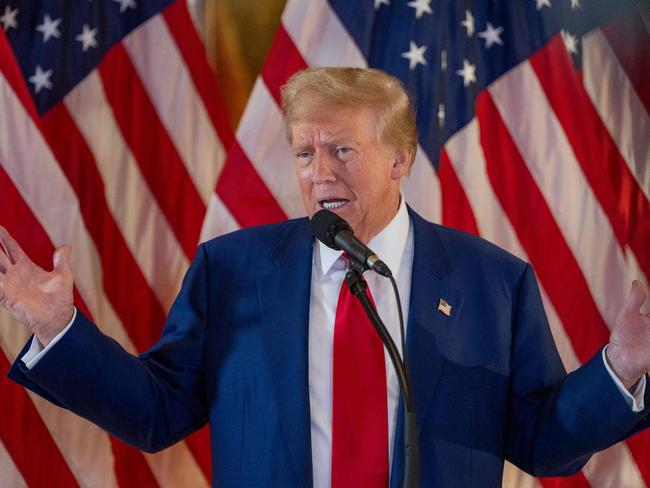
The 77-year-old is showing no signs of the remorse that could be required to avoid jail. His lawyers have not even moved to delay the sentencing hearing – a marked shift in strategy.
Former president Barack Obama’s election strategist David Axelrod said the impulse for both campaign teams would be to “focus obsessively” on Trump’s criminal record.
“But while Trump wallows in his own troubles, the right play for Biden may be to lean even more into the day-to-day concerns of people. The contrast would be powerful,” he said.
Trump’s six-week trial did little to improve Biden’s flailing poll numbers. Swinging voters may not like the former president, but they remain unconvinced his replacement – the oldest president in history who would be 86 by the end of a second term – is up to the job.
Most alarmingly for the Democratic campaign, Biden has been leaking votes among young Americans and Black and Hispanic communities, giving Trump an unusual advantage.
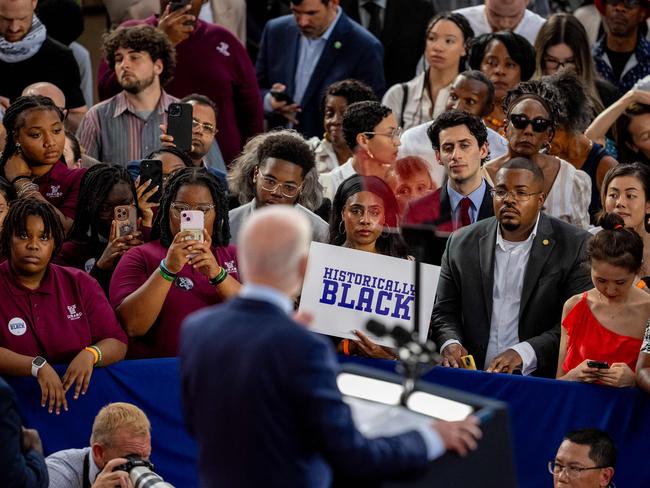
New York Times polling analyst Nate Cohn suggested, however, that this could be explained by Trump’s “political liabilities” having faded from the minds of disengaged voters.
“With so many voters doubtful of a conviction and tuned out altogether, the verdict may come as surprising news to millions,” he said. “This doesn’t mean that young and non-white traditionally Democratic voters will snap back to support Biden, but it seems likelier than if they were already paying attention and expecting it.”
The impact of Trump’s conviction will also be defined by the electoral map. Of the 50 states, just seven are generally believed to be in play for both candidates in November.
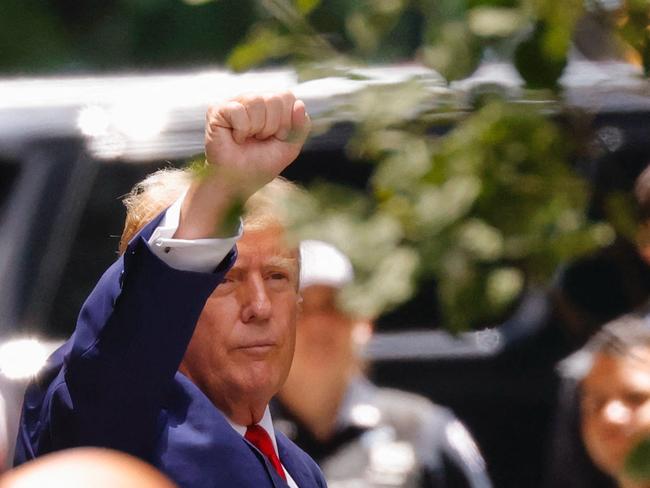
In four of the Sun Belt states – Georgia, Arizona, Nevada and North Carolina, the first three of which Biden narrowly won in 2020 – recent surveys give Trump a comfortable advantage.
But these are traditionally Republican strongholds, compared to the Democratic Party’s so-called “blue wall” of Michigan, Pennsylvania and Wisconsin. Biden polls more positively there, and should he hold on to them while losing the Sun Belt, he would still cling to power.
Ironically, while Trump’s status as a convicted felon is an unprecedented twist in the election race, it should only cement a campaign strategy Biden has employed not just against his bitter rival, but throughout his 52-year political career.
“Don’t compare me to the Almighty,” he likes to say. “Compare me to the alternative.”
In any other election where the alternative is a criminal, that would be enough for Biden. But November 5 will be like no other election – because Trump is like no other candidate.
Originally published as How Donald Trump’s conviction will reverberate for years to come



